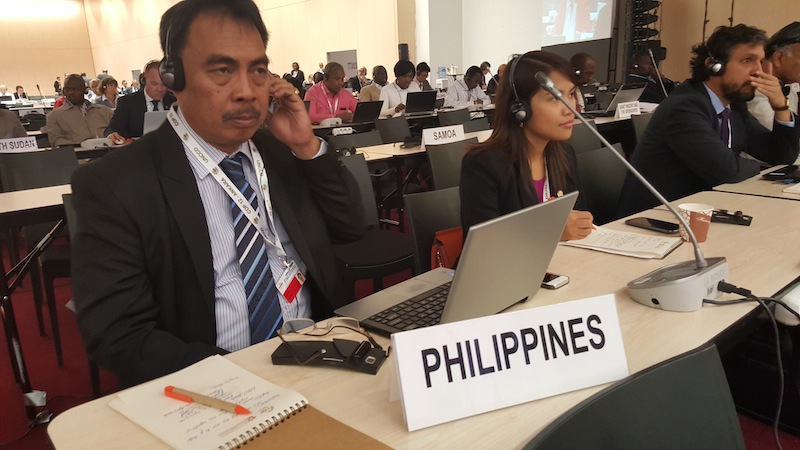By: Hon Sophia Balod
ANKARA, Turkey – Next month, the crucial international climate change talks will be held in Paris, France, and world leaders across 195 countries reached an agreement to “climate-proof” the land to prevent dangerous consequences of a changing climate.
Ahead of the 21st Conference of Parties of the United Nations Framework Conference of Climate Change (UNFCCC), countries have set a goal: to secure food sovereignty and land sustainability, the world should achieve land degradation neutrality (LDN) by 2030 at the12th session of the Conference of the Parties to the United Nations Convention to Combat Desertification (UNCCD) here in Ankara.
All countries have agreed on three LDN indicators to measure progress and recuperation after 15 years: land cover, land productivity, and carbon stocks.
“To make sure we feed the planet, we should focus on restoring the land instead of destroying it,” UNCCD Executive Secretary Monique Barbut said.
Scientists agreed that we can avoid catastrophe if we try to reduce emitting greenhouse gases. The more we delay climate actions, the more it will be costly for most countries to adapt.
Based from the UN, two billion hectares of our land are already degraded; 500 million hectares of these lands are abandoned agricultural lands.
“Land is a limited resource. We degrade our lands, abandon them and then we move to another forest or wetland to degrade. Instead of abandoning degraded land, we should protect, sustain and restore them,” UNCCD Liaison Chief Melchiada Bukuru said.
Step forward
The UNCCD has launched the “Ankara Initiative” to reach the LDN goal to address desertification on a global scale. The government of Turkey has pledged a total of $5 million and an estimated $3 million will be sourced from the Global Environment Facility to provide initial support for the target setting.
An estimated $2billion is needed every year to support the actual restoration activities.
“The Ankara Initiative will be negotiated bilaterally with the Convention and will mainly support activities related to implementing the target on land degradation neutrality,” Lütfü Akça, Turkey’s Undersecretary-General of the Ministry of Forestry and Water Affairs said.
A global crisis
As a result of land degradation, desertification expands on a global scale. Human activities largely contribute to land degradation through land conversion, overuse, deforestation and poor irrigation methods.
Over 250 million people are affected by desertification and drought while over four billion hectares of land are threatened by desertification.
A total of 169 countries have declared themselves affected by desertification, including the Philippines which experiences longer and more severe drought over the past years.
In the Philippines, for instance, over a hundred thousand hectares of land were affected from September 2014 to August 2015 by prolonged dry spells resulting to a production loss of 281,860 million tons.
To address this, Dr. Silvino Tejada of the Bureau of Soils and Water Management will form a subcommittee focusing on drought crisis mitigation under the Committee on the Conservation and Management of Resources for Development (CCMRD).
“We will create or organize a team it’s an interagency team to tackle the formulation of policy towards drought management. This is a serious issue we have to deal with now. It affects our livelihood, health, food production, electricity, and water supply,” Tejada added.
The government of Turkey will present the outcomes of the UNCCD COP 12 during the Climate Change conference in Paris.
text and photos by Hon Sophia Balod
Latest posts by EnviroNewsph (see all)
- Global fund aimed at protecting nature and accelerate investment in conservation, launched in Canada - August 25, 2023
- Why ‘loss and damage’ is the most bitterly fought-over issue at COP27 climate talks? - November 18, 2022
- U.S. hands over P2.3M in equipment and wildALERT system to PH to protect wildlife - December 16, 2020

